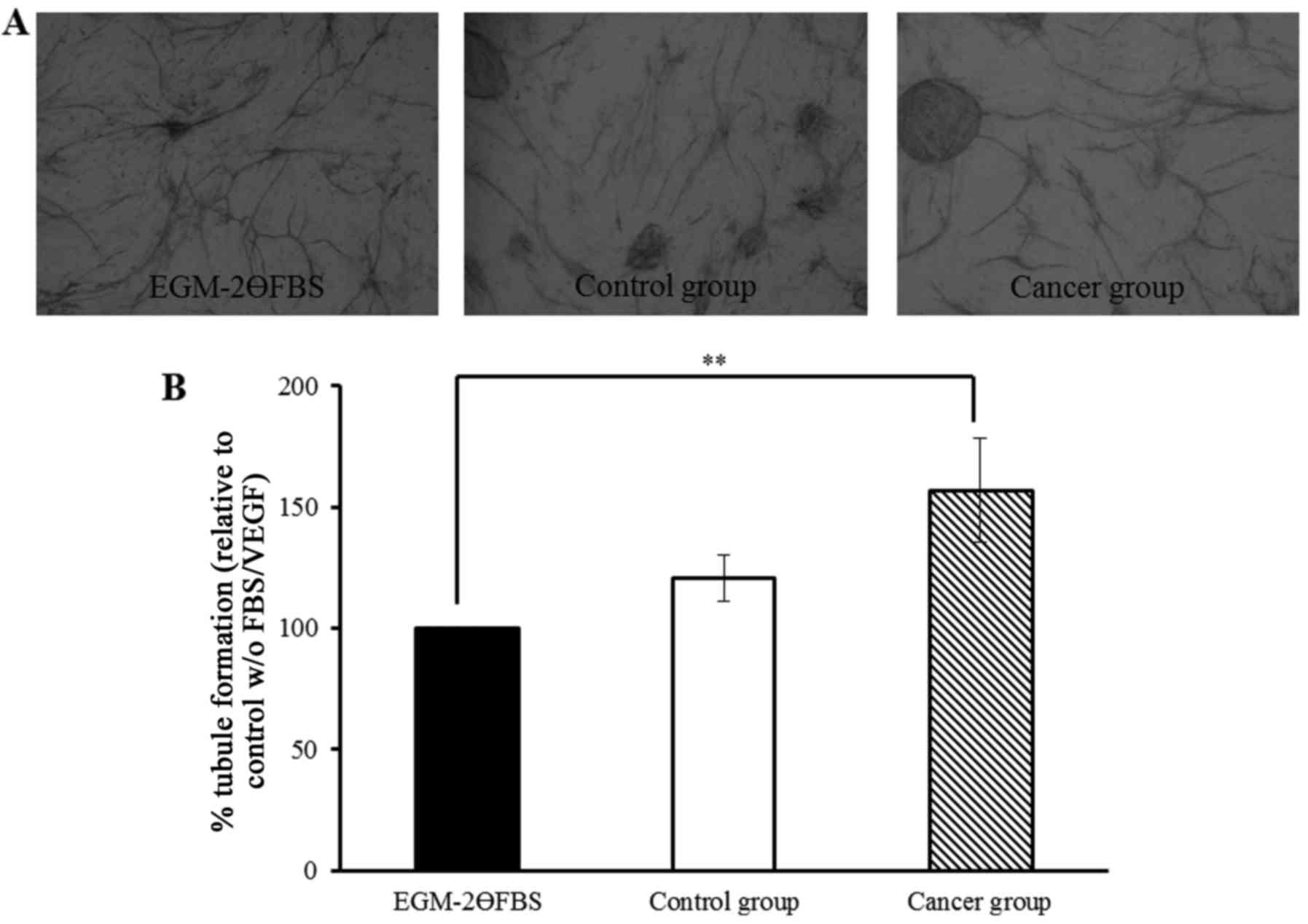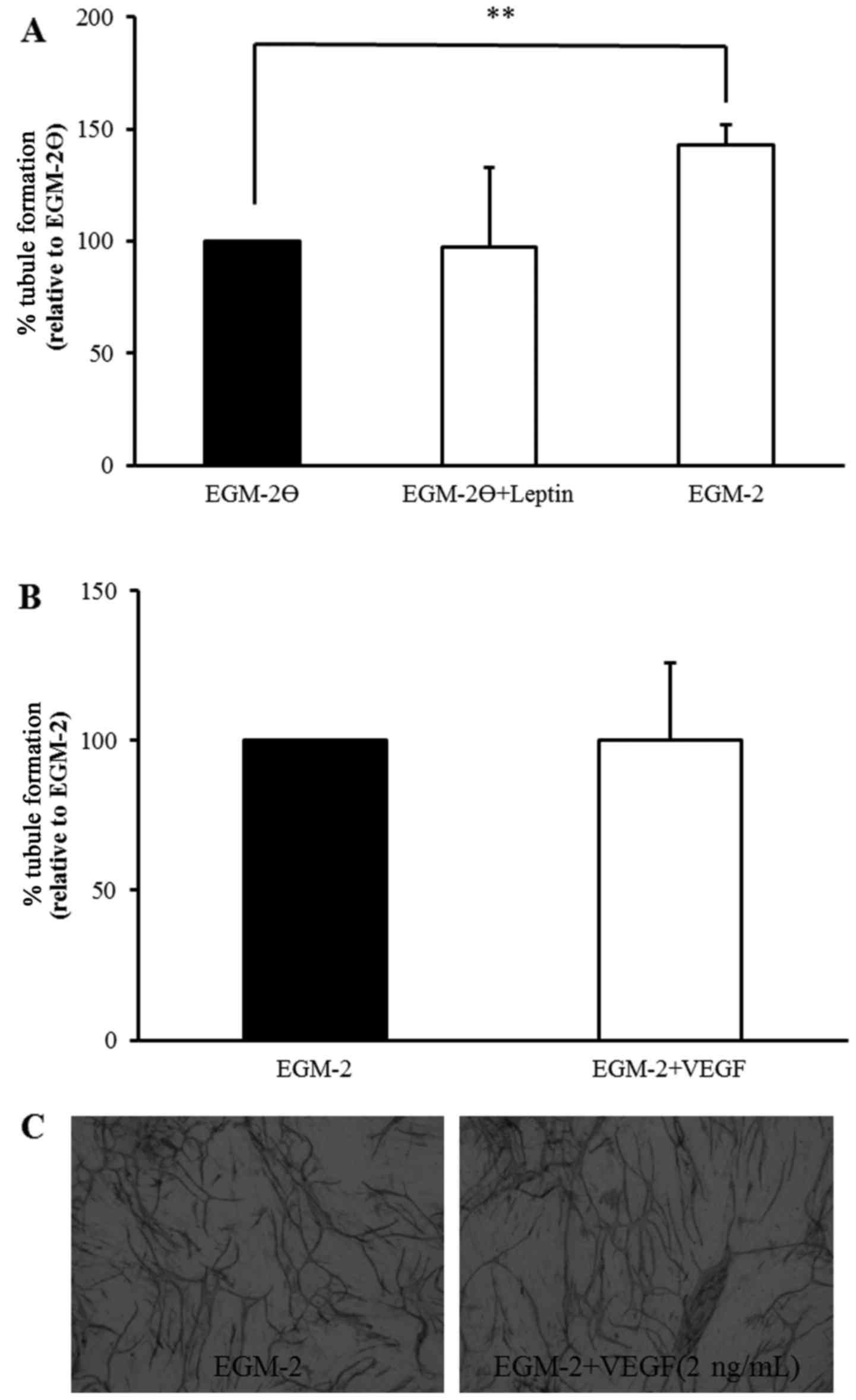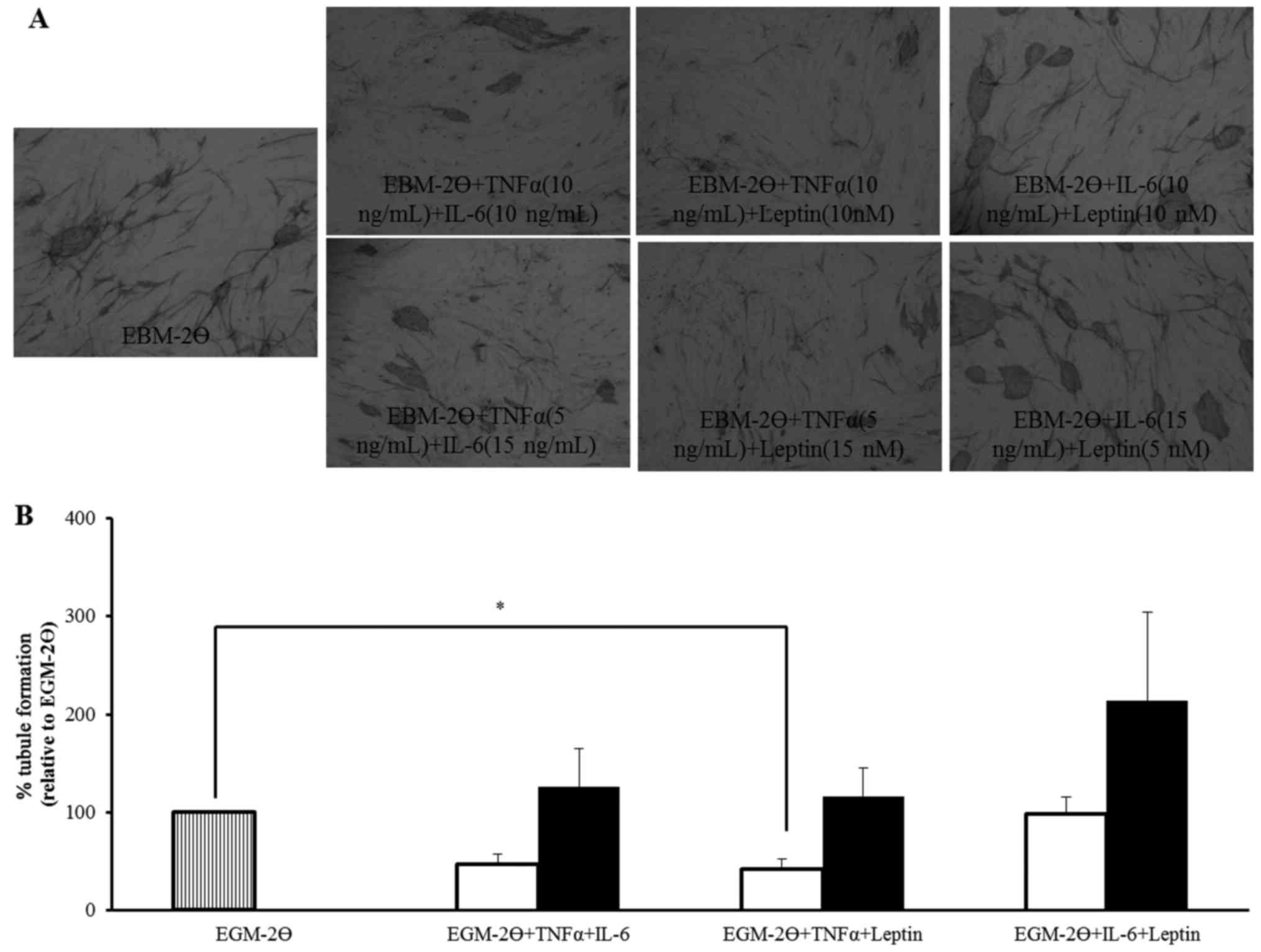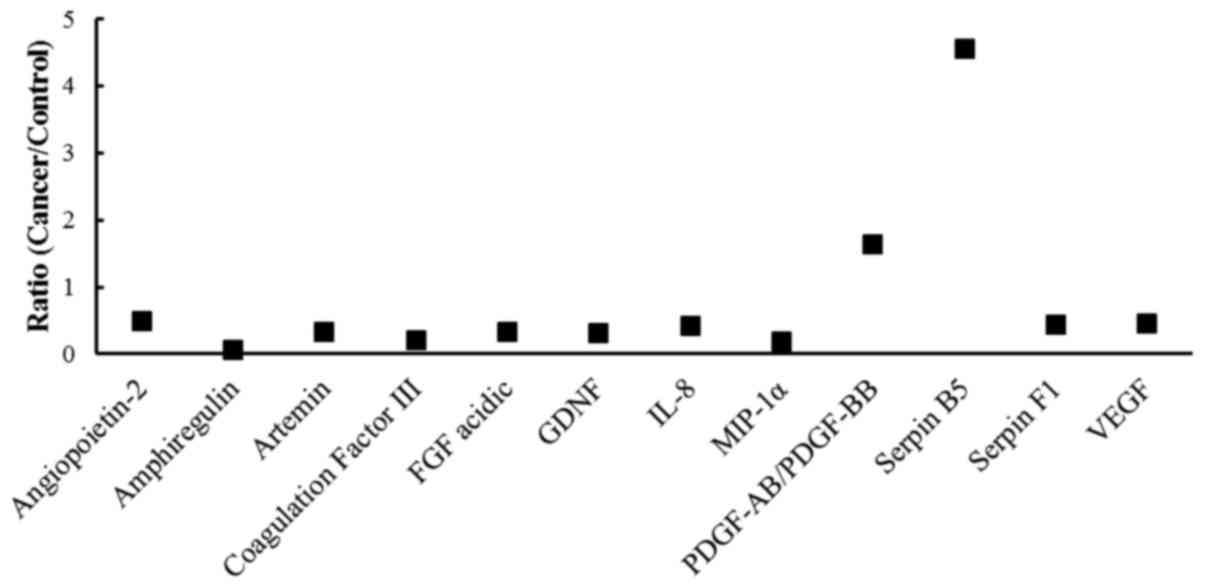|
1
|
DeSantis CE, Lin CC, Mariotto AB, Siegel
RL, Stein KD, Kramer JL, Alteri R, Robbins AS and Jemal A: Cancer
treatment and survivorship statistics, 2014. CA Cancer J Clin.
64:252–271. 2014. View Article : Google Scholar : PubMed/NCBI
|
|
2
|
DeBruin LS and Josephy PD: Perspectives on
the chemical etiology of breast cancer. Environ Health Perspect.
110:(Suppl 1). 119–128. 2002. View Article : Google Scholar : PubMed/NCBI
|
|
3
|
Weigelt B, Peterse JL and van t Veer LJ:
Breast cancer metastasis: Markers and models. Nat Rev Cancer.
5:591–602. 2005. View
Article : Google Scholar : PubMed/NCBI
|
|
4
|
Taneja P, Maglic D, Kai F, Zhu S, Kendig
RD, Fry EA and Inoue K: Classical and novel prognostic markers for
breast cancer and their clinical significance. Clin Med Insights
Oncol. 4:15–34. 2010.PubMed/NCBI
|
|
5
|
Yersal O and Barutca S: Biological
subtypes of breast cancer: Prognostic and therapeutic implications.
World J Clin Oncol. 5:412–424. 2014. View Article : Google Scholar : PubMed/NCBI
|
|
6
|
Dirix LY, Vermeulen PB, Pawinski A, Prové
A, Benoy I, De Pooter C, Martin M and Van Oosterom AT: Elevated
levels of the angiogenic cytokines basic fibroblast growth factor
and vascular endothelial growth factor in sera of cancer patients.
Br J Cancer. 76:238–243. 1997. View Article : Google Scholar : PubMed/NCBI
|
|
7
|
Relf M, LeJeune S, Scott PA, Fox S, Smith
K, Leek R, Moghaddam A, Whitehouse R, Bicknell R and Harris AL:
Expression of the angiogenic factors vascular endothelial cell
growth factor, acidic and basic fibroblast growth factor, tumor
growth factor β-1, platelet-derived endothelial cell growth factor,
placenta growth factor, and pleiotrophin in human primary breast
cancer and its relation to angiogenesis. Cancer Res. 57:963–969.
1997.PubMed/NCBI
|
|
8
|
Coskun U, Günel N, Toruner FB, Sancak B,
Onuk E, Bayram O, Cengiz O, Yilmaz E, Elbeg S and Ozkan S: Serum
leptin, prolactin and vascular endothelial growth factor (VEGF)
levels in patients with breast cancer. Neoplasma. 50:41–46.
2003.PubMed/NCBI
|
|
9
|
Chavey C, Bibeau F, Gourgou-Bourgade S,
Burlinchon S, Boissière F, Laune D, Roques S and Lazennec G:
Oestrogen receptor negative breast cancers exhibit high cytokine
content. Breast Cancer Res. 9:R15–R26. 2007. View Article : Google Scholar : PubMed/NCBI
|
|
10
|
Gonzalez RM, Daly DS, Tan R, Marks JR and
Zangar RC: Plasma biomarker profiles differ depending on breast
cancer subtype but RANTES is consistently increased. Cancer
Epidemiol Biomarkers Prev. 20:1543–1551. 2011. View Article : Google Scholar : PubMed/NCBI
|
|
11
|
Castañeda-Gill JM and Vishwanatha JK:
Antiangiogenic mechanisms and factors in breast cancer treatment. J
Carcinog. 15:1–39. 2016. View Article : Google Scholar : PubMed/NCBI
|
|
12
|
Li L, Chen L, Zhang W, Liao Y, Chen J, Shi
Y and Luo S: Serum cytokine profile in patients with breast cancer.
Cytokine. 89:173–178. 2016. View Article : Google Scholar : PubMed/NCBI
|
|
13
|
Rovati B, Mariucci S, Delfanti S, Grasso
D, Tinelli C, Torre C, De Amici M and Pedrazzoli P: Simultaneous
detection of circulating immunological parameters and tumor
biomarkers in early stage breast cancer patients during adjuvant
chemotherapy. Cell Oncol (Dordr). 39:211–228. 2016. View Article : Google Scholar : PubMed/NCBI
|
|
14
|
Barron GA, Bordet E, Goua M and Bermano G:
Modulation of angiogenesis by inflammatory markers and the role of
matrix metalloproteinases in an endothelial cell/fibroblast
co-culture system. Curr Angiogenes. 3:152–163. 2014. View Article : Google Scholar
|
|
15
|
Bishop ET, Bell GT, Bloor S, Broom IJ,
Hendry NF and Wheatley DN: An in vitro model of angiogenesis: Basic
features. Angiogenesis. 3:335–344. 1999. View Article : Google Scholar : PubMed/NCBI
|
|
16
|
Bermano G, Smyth E, Goua M, Heys SD and
Wahle KW: Impaired expression of glutathione peroxidase-4 gene in
peripheral blood mononuclear cells: A biomarker of increased breast
cancer risk. Cancer Biomark. 7:39–46. 2010. View Article : Google Scholar : PubMed/NCBI
|
|
17
|
Schneider BP and Miller KD: Angiogenesis
of breast cancer. J Clin Oncol. 23:1782–1790. 2005. View Article : Google Scholar : PubMed/NCBI
|
|
18
|
Carmeliet P and Jain RK: Molecular
mechanisms and clinical applications of angiogenesis. Nature.
473:298–307. 2011. View Article : Google Scholar : PubMed/NCBI
|
|
19
|
Morelli D, Lazzerini D, Cazzaniga S,
Squicciarini P, Bignami P, Maier JA, Sfondrini L, Ménard S,
Colnaghi MI and Balsari A: Evaluation of the balance between
angiogenic and antiangiogenic circulating factors in patients with
breast and gastrointestinal cancers. Clin Cancer Res. 4:1221–1225.
1998.PubMed/NCBI
|
|
20
|
Gisterek I, Matkowski R, Lacko A,
Sedlaczek P, Szewczyk K, Biecek P, Halon A, Staszek U, Szelachowska
J, Pudelko M, et al: Serum vascular endothelial growth factors a, C
and d in human breast tumors. Pathol Oncol Res. 16:337–344. 2010.
View Article : Google Scholar : PubMed/NCBI
|
|
21
|
Zhang GJ and Adachi I: Serum interleukin-6
levels correlate to tumor progression and prognosis in metastatic
breast carcinoma. Anticancer Res. 19:(2B). 1427–1432.
1999.PubMed/NCBI
|
|
22
|
Georgiou GK, Igglezou M, Sainis I, Vareli
K, Batsis H, Briasoulis E and Fatouros M: Impact of breast cancer
surgery on angiogenesis circulating biomarkers: A prospective
longitudinal study. World J Surg Oncol. 11:213–221. 2013.
View Article : Google Scholar : PubMed/NCBI
|
|
23
|
Weichhaus M, Broom I and Bermano G: The
molecular contribution of TNF-α in the link between obesity and
breast cancer. Oncol Rep. 25:477–483. 2011.PubMed/NCBI
|
|
24
|
Weichhaus M, Broom J, Wahle K and Bermano
G: Leptin inhibits proliferation of breast cancer cells at
supraphysiological concentrations by inhibiting mitogen-activated
protein kinase signaling. Oncol Lett. 8:374–378. 2014.PubMed/NCBI
|
|
25
|
Rodrigues S, Van Aken E, Van Bocxlaer S,
Attoub S, Nguyen QD, Bruyneel E, Westley BR, May FE, Thim L, Mareel
M, et al: Trefoil peptides as proangiogenic factors in vivo and in
vitro: Implication of cyclooxygenase-2 and EGF receptor signaling.
FASEB J. 17:7–16. 2003. View Article : Google Scholar : PubMed/NCBI
|
|
26
|
Garonna E, Botham KM, Birdsey GM, Randi
AM, Gonzalez-Perez RR and Wheeler-Jones CP: Vascular endothelial
growth factor receptor-2 couples cyclo-oxygenase-2 with
pro-angiogenic actions of leptin on human endothelial cells. PLoS
One. 6:e188232011. View Article : Google Scholar : PubMed/NCBI
|
|
27
|
Dubois V, Delort L, Billard H, Vasson MP
and Caldefie-Chezet F: Breast cancer and obesity: In vitro
interferences between adipokines and proangiogenic features and/or
antitumor therapies? PLoS One. 8:e585412013. View Article : Google Scholar : PubMed/NCBI
|
|
28
|
Ferla R, Bonomi M, Otvos L Jr and Surmacz
E: Glioblastoma-derived leptin induces tube formation and growth of
endothelial cells: Comparison with VEGF effects. BMC Cancer.
11:303–314. 2011. View Article : Google Scholar : PubMed/NCBI
|
|
29
|
Nielsen DL, Andersson M, Andersen JL and
Kamby C: Antiangiogenic therapy for breast cancer. Breast Cancer
Res. 12:209–224. 2010. View
Article : Google Scholar : PubMed/NCBI
|
|
30
|
Korampalli TS, Green V, Greenman J and
Stafford ND: Protein profiling of angiogenesis-related growth
factors in laryngeal carcinoma: pattern of protein expression in
relation to tumour progression. Int J Oncol. 39:1033–1039.
2011.PubMed/NCBI
|


















